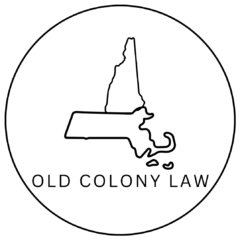This white paper discusses some of the ways golf can impact your estate plan and asset protection strategy.
Your name doesn’t have to be Jack, Annika, or Tiger for golf to impact your estate plan. Whether you’re an avid player, golf industry professional, or dedicated patron, you know that golf is more than just a game – it’s an indispensable part of life. Therefore, it’s important for you to consider how golf can – and should – play a role in your estate plan and asset protection strategy.
At first, estate planning might seem as intimating as a round of golf at Augusta National, but, with Old Colony Law’s flexible, personalized, and customized estate plans and asset protection strategies, you’ll feel like you’re playing way under par.
TANGIBLE PERSONAL PROPERTY
Your Scotty Cameron putter, autographed pin flag collection, great-grandfather’s golf bag, and Lee Wybranski course artwork are items of tangible personal property that you may wish to leave to family members or friends upon your death. Giving clear instructions as to who gets what can prevent family bickering and ensure that your valuable or sentimental golf equipment and memorabilia doesn’t end up in the hands of a distant relative or at your neighbor’s garage sale.
It’s often impracticable and burdensome to keep score of every item you own in your will. Fortunately, many states have teed-up laws that permit you to reference a separate memorandum in your will that details how you want your tangible personal property to pass. This memorandum can be easily modified as your golf collections grow and prevents the time and expense of updating your will every time you acquire a new set of clubs.
ASSET PROTECTION DURING LIFE AND AFTER DEATH
An inheritance can quickly be squandered if left to your children outright, which is why it’s important to consider protecting your loved one’s inheritance from potential bogeys. Old Colony Law’s asset protection trusts help ensure that your child doesn’t spend their entire inheritance on extravagant golf vacations to the Old Course – or whittle it away due to financial immaturity or substance abuse. What’s more, asset protection trusts can protect against your son-in-law or daughter-in-law from laying claim to a portion of your child’s inheritance in future divorce proceedings – meaning that your money stays in your family on your terms, rather than in the unpredictability of a juicy lie.
In addition to keeping your loved one’s inheritance in the fairway after your death, asset protection during life is critical for golf industry professionals. Course architects, landscapers, videographers, coaches, playing professionals, and equipment and catering vendors should read the greens of their business structures and contractual agreements to ensure protection of their personal assets from the hazards of potential lawsuits and creditors.
CHARITABLE GIFTING
Do you want to build a legacy that aims to grow the game you love, protects golf history and traditions, or furthers course environmental sustainability projects? Perhaps you’d like to give back to your golf club – the club where you spent time perfecting your game, building friendships, and making memories. Fortunately, there are a number of charities and nonprofits in the golf world, and working with Old Colony Law in implementing a golf-related charitable gifting strategy can serve the dual purpose of maximizing your philanthropic impact and minimizing your tax bills.
The most straightforward method of making a charitable donation is making an outright gift to a Qualified Charitable Organization during your lifetime. Distributions from an IRA often have tax benefits, and in some circumstances may count toward your required minimum distribution for the year. Outright gifts to charity at your death can help avoid or mitigate estate taxes so your family doesn’t have to pay extra greens fees to the IRS.
CLUB MEMBERSHIPS
Comprehensive estate planning includes reviewing the terms of club membership agreements to determine what happens to your membership when you die. Some clubs enable individuals to putt their membership to a surviving spouse or name a successor member, while others may provide your family with a full or partial dues refund. Read these contracts carefully because it can be difficult to win in match play against your club. Courts generally permit private membership clubs broad discretion in adopting and administering rules related to memberships, especially in the absence of bad faith.
